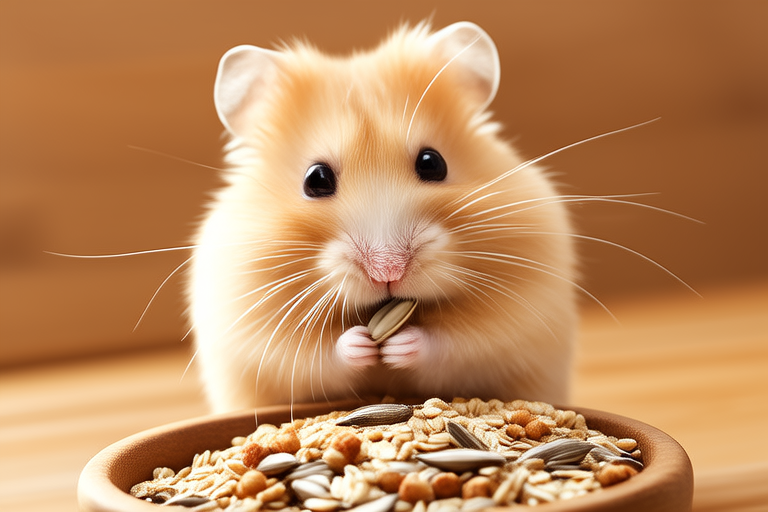The Best Diet Tips That Will Make Your Golden Hamster Thrive
Welcome to the world of golden hamster care! These tiny creatures have specific dietary needs that, when met, can lead to a long, healthy life. As a responsible pet owner, understanding what constitutes a balanced diet for your hamster is crucial. This guide will walk you through the essential nutrients, appropriate foods, and feeding practices that will ensure your golden hamster thrives.
Dietary Needs of Golden Hamsters
Golden hamsters are small rodents with unique nutritional requirements. They are omnivores, meaning they need a mix of plant and animal matter in their diet. Their digestive systems are designed to process fibrous plant material efficiently, but they also require protein for muscle development and maintenance. A balanced diet is key to preventing obesity, malnutrition, and other health issues.
Essential Nutrients
Proteins
Proteins are vital for muscle repair and growth. High-quality protein sources, such as lean meats, eggs, and legumes, help maintain a hamster’s active lifestyle. Protein-rich pellets formulated specifically for hamsters provide a convenient way to meet this requirement.
Fats
Fats are important for energy and cell function. While hamsters need fat, it must be provided in moderation. Excessive fat can lead to obesity and related health problems. Seeds and nuts are good sources of healthy fats, but they should be given sparingly.
Carbohydrates
Carbohydrates are the primary source of energy for hamsters. They come from grains and vegetables. Ensure your hamster has access to whole grains and fresh vegetables to keep its energy levels up throughout the day.
Vitamins and Minerals
Vitamins and minerals support overall health. Vitamin C is particularly important as it aids in immune function and wound healing. Fresh fruits and vegetables are rich in vitamins and minerals. Calcium and phosphorus are necessary for bone health.
Specific Food Recommendations
Pellets
Pellets are a cornerstone of a hamster’s diet. Choose high-quality commercial pellets designed for small pets. These pellets are fortified with essential vitamins and minerals. Feed approximately one tablespoon per day, adjusted according to your hamster’s activity level and size.
Seeds and Nuts
Seeds and nuts provide fats and proteins. However, they are calorie-dense and should be given sparingly—about a teaspoon weekly. Sunflower seeds are a favorite but can cause obesity if overfed.
Fruits and Vegetables
Fruits and vegetables offer a variety of nutrients. Offer a small piece of apple, carrot, or cucumber daily. Avoid acidic fruits like citrus, which can irritate the stomach.
Treats
Treats can be a fun addition to your hamster’s diet but should be limited. Commercial hamster treats or small pieces of cheese can be offered occasionally. Always introduce new foods gradually to prevent digestive upset.
Potential Dangers of Overfeeding or Inappropriate Foods
Overfeeding can lead to obesity, which increases the risk of diabetes, heart disease, and joint problems. Certain foods can be harmful. Avocado pits and leaves contain persin, which is toxic to hamsters. Chocolate and caffeine can also be dangerous due to their stimulating effects.
Maintaining Water Cleanliness and Hydration
Water is essential for your hamster’s health. Use a sipper bottle designed for small animals to ensure clean, fresh water at all times. Change the water daily and clean the bottle thoroughly to prevent bacterial growth. Regular hydration helps maintain proper digestion and overall health.
Monitoring Weight and Adjusting Diet Plans
Regularly check your hamster’s weight to ensure it remains within a healthy range. Obesity can be managed by reducing the amount of high-calorie foods like seeds and nuts. Conversely, underweight hamsters may need more nutrient-dense foods. Consult with a veterinarian if you notice significant changes in weight or appetite.
